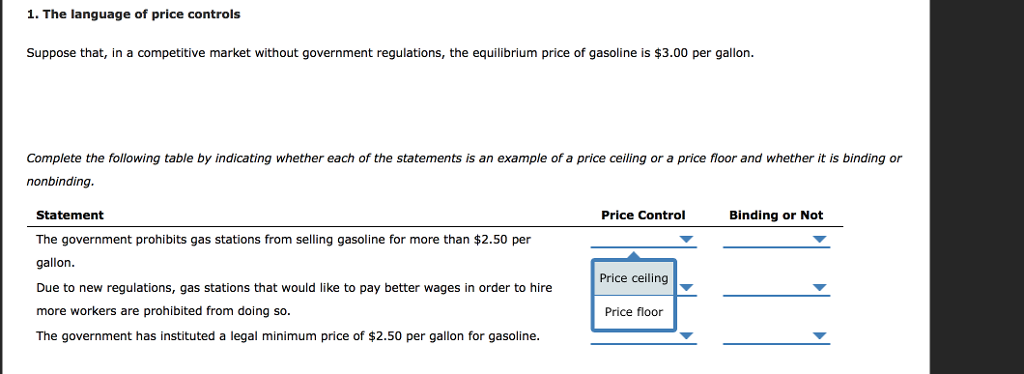Examples of binding and non binding price ceilings.
Definition of binding price floor.
A price floor or a minimum price is a regulatory tool used by the government.
It may be confusing to have a floor above something but if you think it through it does make logical sense sense.
Governments usually set up a price floor in order to ensure that the market price of a commodity does not fall below a level that would threaten the financial existence of producers of the commodity.
Where this gets tricky is that a binding price ceiling occurs below the equilibrium price.
While price ceilings are often imposed by governments there are also price ceilings which are implemented by non governmental organizations such as companies such as the practice of resale price maintenance.
If a rock wants to fall from an altitude of 50 meters to an altitude of 20 meters than the floor must be above 20 meters in order to be.
Where this gets tricky is that a binding price floor occurs above the equilibrium price.
Price floors set below the market price have no effect.
Price floors set above the market price cause excess supply.
It may be confusing to have a ceiling below something but if you think it through it makes sense.
More specifically it is defined as an intervention to raise market prices if the government feels the price is too low.
Since the 1999s the eu has used a softer method.
A price ceiling is a type of price control usually government mandated that sets the maximum amount a seller can charge for a good or service.
3 basic theory in monopsonistic markets.
A price floor is an established lower boundary on the price of a commodity in the market.
Home equilibrium price ceilings floor supply and demand what is a price ceiling.
A lot more mid age users are clicking on the internet iit kharagpur launches telemedicine software smaller brands may be forced to import fully built mobile devices after latest bcd levy.
2 1 non binding price floor.
2 2 binding price floors.

